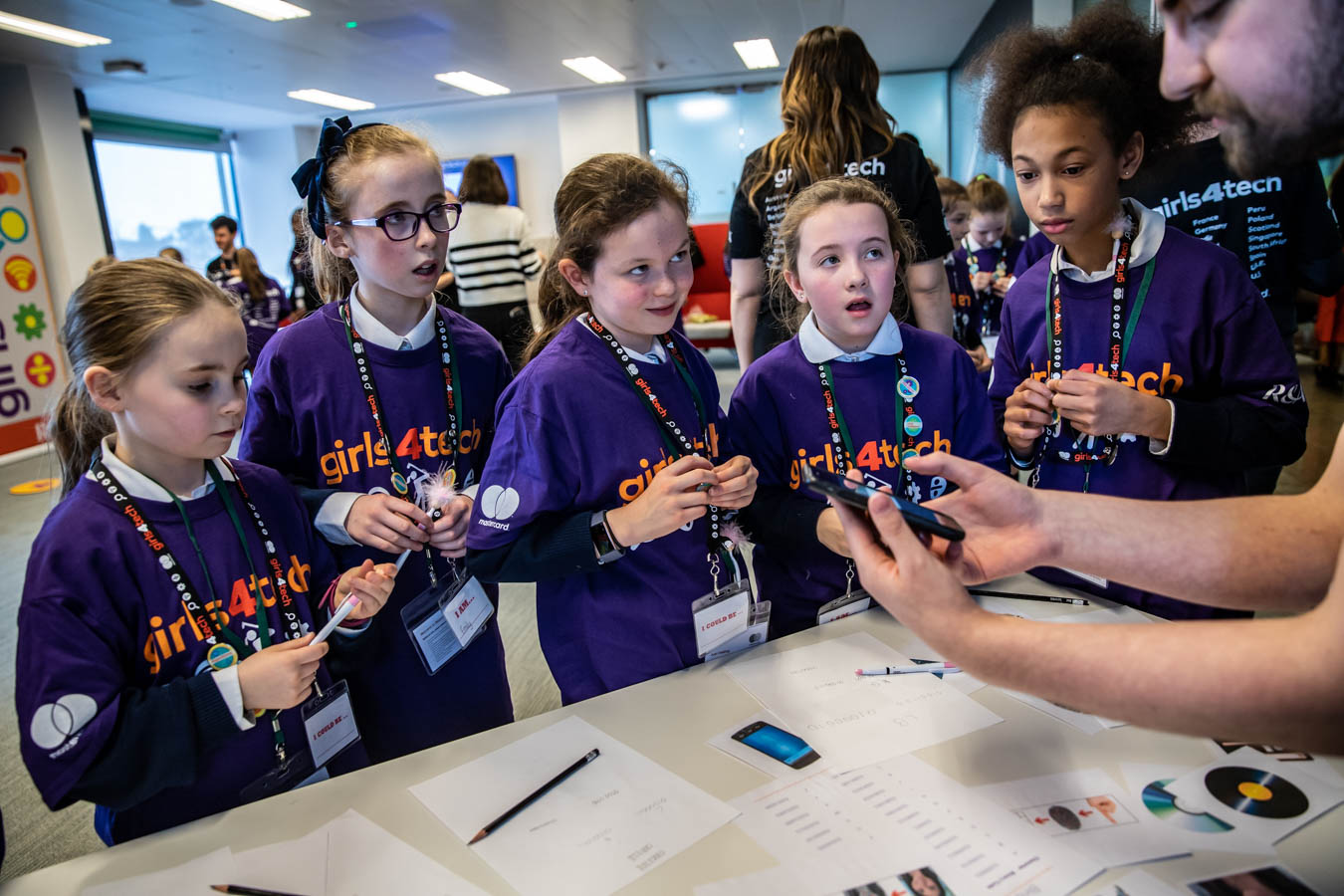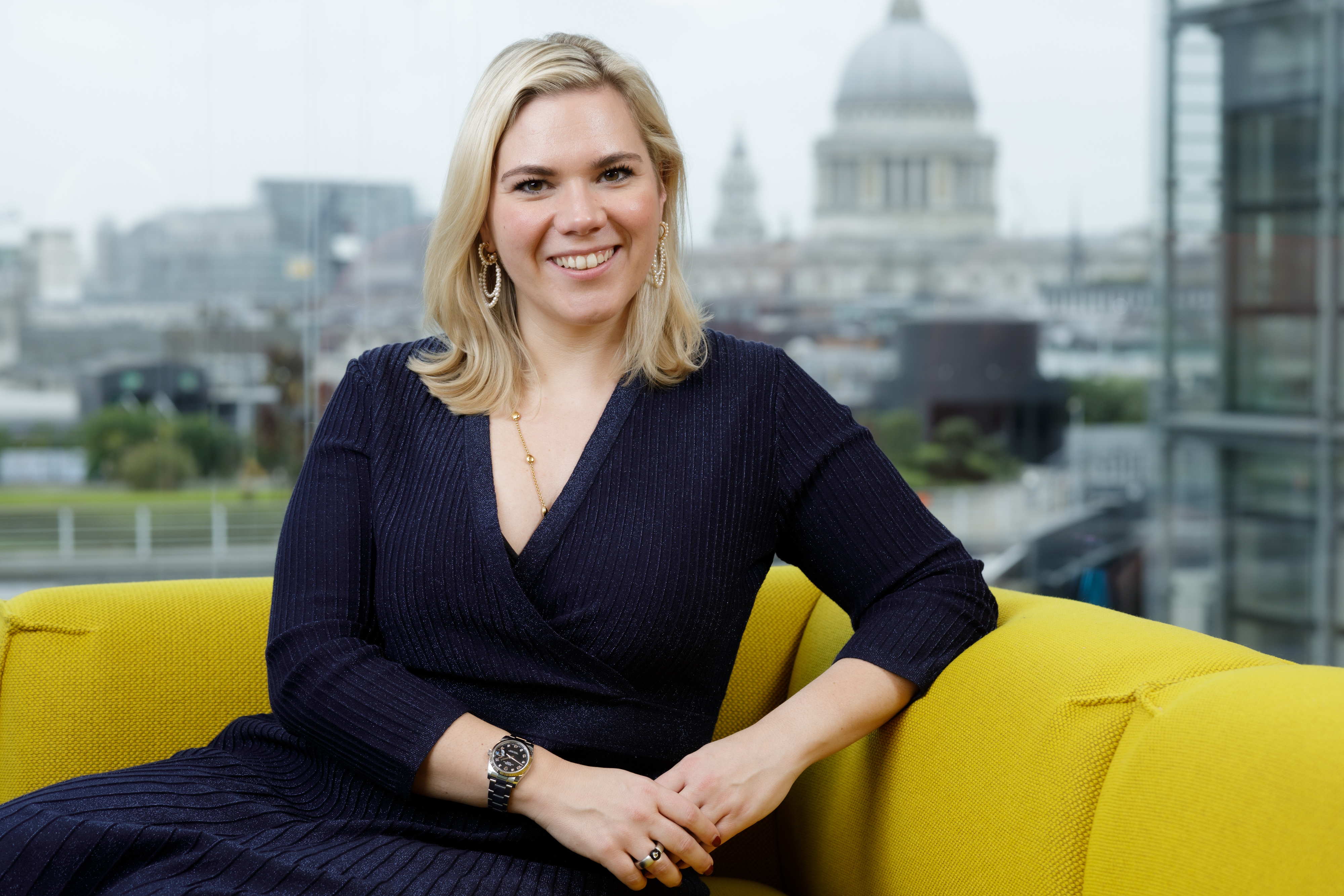
Making gender equality business as usual
Por Eva-Maria Baumer
 Volver a perspectivas
Volver a perspectivas
Making gender equality business as usual
abril 2020 Por Eva-Maria Baumer
 Volver a perspectivas
Volver a perspectivas
Although there is still work to be done in the fight for gender equality, there have been some fantastic initiatives that call for celebration. Eva-Maria Baumer, VP of Corporate Engagement at Mastercard, lays it on the line.
The world is full of brilliant opportunities, but they are not always open to everyone. The truth is that too much of our world has been designed without women in mind and without women involved. Even today, inequality and exclusion are still holding women back. In fact, they hold us all back.
The imbalance of opportunities and equality is often exacerbated through policies and laws. As a recent study on the progress of the world’s women highlighted, there are still some countries where women are not allowed to inherit property or are required by law to obey their husbands (UN Women, 2019). What’s more, almost half of the world’s economies legally restrict women’s decision to join or remain in the labour force (The World Bank, 2019). And it doesn’t stop here. Diversity of thought, gender and ethnicity has still not found its way into the boardrooms and leadership positions of corporates. While it’s true that some progress has been made in the UK with upwards of 30% of women on FTSE 350 boards, why are only a paltry 5% of CEOs women?
An ongoing lack of diversity and inclusion could have a significant negative impact on how we design the world for the next generation. In an age in which artificial intelligence will perform more and more human tasks, we must ensure we eliminate data bias to avoid gender stereotypes. What do I mean by data bias? Well, take a 2016 study looking at word embeddings trained on Google News articles: it found that the vector analogy, “man is to computer programmer as woman is to x”, was completed with x = homemaker (Forbes, 2020).
As a woman in business, findings such as these lead me to ask myself if we are still reduced to being the main caregiver in families? Shouldn’t we have reached a stage where men are equally involved with taking care of their families? I think so, and happily there is evidence – and data - that suggest we are moving in the right direction. For example, Mastercard offers four months of maternity and two months of paternity leave as a global standard, and 80% of my male colleagues with newborns gladly take it. Now, Mastercard is looking into unifying parental leave for both men and women to create a more level playing field.

Education plays a key role, too. Mastercard would like to bring more girls into STEM (Science, Technology, Engineering and Mathematics) subjects to ensure that we design a world that works for everyone. Our Girls4Tech program has already inspired more than 800,000 girls in 27 countries to enjoy and study subjects such as AI or cyber security.
The good news is that more and more businesses are waking up to the fact that pushing for gender balance is not only the right thing to do, it also makes good business sense. Ultimately, women represent a significant customer base who make up to 80% of day-to-day purchase decisions but are still not served appropriately. Global consulting firm Oliver Wyman estimated in 2019 that the financial industry alone is leaving a revenue opportunity of $700B on the table by not fully meeting the needs of women consumers.
In order to seize this opportunity fully and affect change, businesses need to think about three questions: how to support their own people, how to impact the market through their products and programs, and how to drive change in society through public-private partnerships.
From a people perspective, culture trumps everything. Having diverse perspectives represented and fostering an inclusive environment where people feel they have a seat at the table is critical. This needs to come from the top with senior management leading the charge. Equal pay for equal work is one driver for inclusive growth. In addition, having balanced slates to increase a diverse pool of job candidates and active succession planning can help move the needle.
Mastercard is also working with its customers to co-create products that better serve women’s needs. Through our own research with over 40,000 people, we know that women are just as financially confident as men, taking greater control of their finances and seeking greater simplicity and stability. This global segmentation study has informed our product development framework and together with our customers we aim to design solutions that transform women’s access to and experience of finance.
We also run the Mastercard Index of Women Entrepreneurs, a global initiative tracking the progress and achievement of women business owners across 58 markets, highlighting the significance of geography in female entrepreneurship. Unsurprisingly, the study shows that female business owners are doing better in high-income, advanced economies that provide highly enabling conditions.
No one can push the envelope alone. We need support from other public and private organisations that help challenge the status quo, influence key stakeholders and negotiate to achieve positive change. Some campaigns that are driving change are the 30% Club, which works with organisations to help leaders drive culture change, and the Financial Alliance for Women, which rallies financial institutions to better serve the women’s market. UN Women advocates for improved policies and living conditions. And there are many more organisations out there doing important work in this area, because there is still so much more work for us to do.
I’m privileged to work at a company where my day-to-day job is to influence key stakeholders to drive gender balance from a business perspective at large scale – within the company and beyond. Our mission is to create a world designed with women in mind and women involved. And that does not mean men versus women – it’s men and women. Because a world that works better for women creates limitless possibilities for us all.
Join us on the journey! If you are interested in learning more about this topic, please download our Gender and Negotiation report below.
